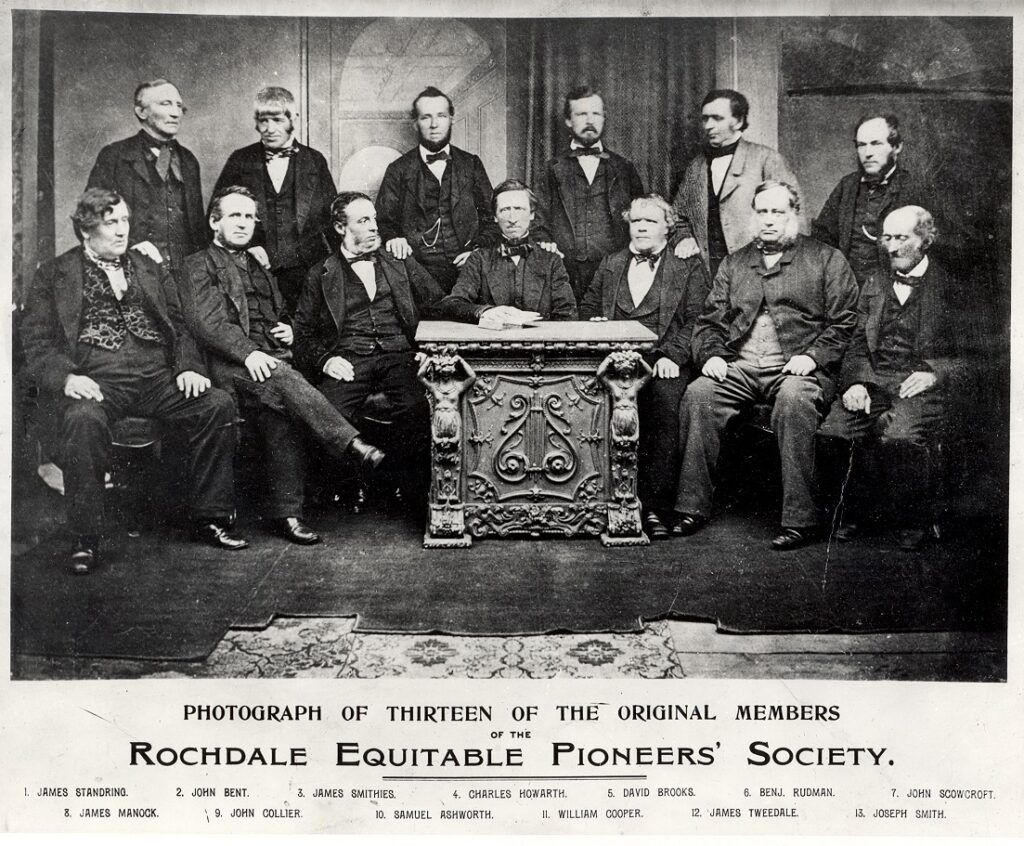The earliest record of a co-operative comes from Fenwick, Scotland where, on 14 March 1761, the Fenwick Weavers’ Society was set up to support weavers and secure their trade’s future. There were other early co-ops too, but it was in 1844, in Rochdale, UK, that 28 men developed a business model that would change the world.

These men had formed the Rochdale Society of Equitable Pioneers. As the Industrial Revolution saw poverty increase and food quality decline, a group of tradesmen banded together to open their own store selling good quality, unadulterated food items they could not otherwise afford.
On 21 December 1844, they opened the door at 31 Toad Lane, Rochdale (now a museum), selling butter, sugar, flour and oatmeal. Within three months, they expanded their selection to include tea and tobacco, and by the end of their first year of trading, the Pioneers had 80 members and £182 of capital.
Not only did they want fair prices and fair quality, the Pioneers wanted fairness for shoppers, too. They decided shoppers should be able to share in the profits their custom contributed to (a dividend), and should have a democratic right to have a say in the business. To this end, customers of the shop could become a member-owner and so have a true stake in the business.
The Pioneers also set out the Rochdale Principles, which provide the foundation for the values and principles on which the 3 million co-ops around the world operate to this day.
These co-ops include well-known organisations and household brands, such as Arla, Ocean Spray, Barcelona FC and the whole credit union family.